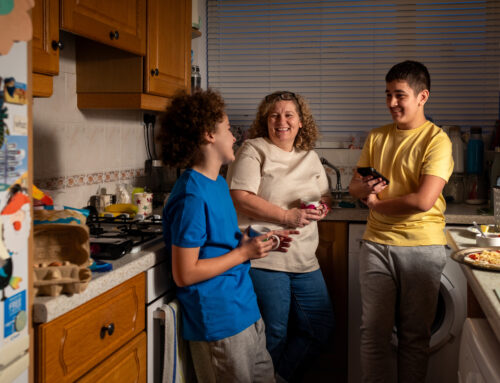Punishment for Teenage Drinking — Do’s and Don’ts

You caught your teen sneaking into the house after curfew and they are less than steady on their feet. Based on that and the way they smell, you suspect your teen has been drinking alcohol. They’re busted. What do you do now? Before you decide on a punishment for teenage drinking, take a deep breath. Keep these five do’s and don’ts in mind when talking to your teenager.
1. Don’t Lecture
The next day, have your game plan ready and sit down for a calm conversation. Find out why your teen was drinking. Maybe they felt pressured by friends or got drunk to cope with a problem at school? Listen to their motivations for drinking and show them you recognize the challenges and temptations they face. This is also the time to set (or review) your expectations for a zero-tolerance policy, and the punishment for underage drinking in your household.
Make Sure Teens Know the Facts:
- Alcohol is not a way to cope with problems or stress. It’s a depressant and can make teens feel more depressed.
- Teenage brains are still developing, and alcohol can cause permanent damage to areas that control judgment, impulse control, and memory.
- Teens are more likely to binge drink (four to five or more drinks at a time) when they consume alcohol. This can lead to unplanned sexual activity, violence, and alcohol poisoning.
- Drinking is illegal for anyone under the age of 21. Legal penalties for underage drinking in North Carolina can include fines, community service, and court fees in addition to the long-term implications.
Talk to your teen openly, honestly, and from a place of love. Remind them that you’re still in their corner, but also make sure they know this is a breach of your trust. If the rules are broken, there will be punishments for teenage drinking.
2. Do Impose Appropriate Punishment
Let your child know you’re disappointed and that you want them to learn from the consequences. They have lost your trust and should understand that it will take time to earn back.
Loss of Privileges
Taking away a teenager’s cellphone, computer, or video games are the go-to punishments for most parents. You really get a teen’s attention when they’re not buried in a screen.
Grounding
It may be old-school, but when kids can’t see their friends, fear of missing out will make them think twice about taking a drink next time.
Research Underage Drinking
Have your teen research the risks of underage drinking and present their findings to the family. This can be a good time to have the whole family brainstorm ways to deal with situations where alcohol might be present, like a party or a sleepover.
Random Searches
This is about broken trust. Institute random searches of possessions and personal space for several weeks or months. Teens should understand that building back trust takes time.
Let Teens Choose the Punishment
Kids can be very hard on themselves. Parents are often surprised when a kid suggests giving up all electronics, doing extra chores, and skipping a trip to the beach with their best friend’s family. You may find yourself reigning in their suggestions, so both of you feel the punishment is fair.
There is no one single answer for how to discipline a teenager because all kids are different. You know what your child will respond to, and which punishments will backfire.
3. Don’t Humiliate Your Teen
We’ve all read stories about parents publicly humiliating their kids, making them stand on the side of a busy road while holding embarrassing signs. This is a good way to alienate your teen, not to foster good communication.
The goal of choosing a punishment for teenage drinking should be to guide your teen to make a better choice next time, and to keep the lines of communication open.
4. Do Watch for Signs of a Bigger Problem
Chances are, the first time you catch your teen drunk is not the first time they’ve had a drink. Parents who suspect their teen may be using alcohol should know the signs to look for:
- Mood changes
- School problems
- Friend changes
- A “nothing matters” attitude
If you notice several signs at once or if some are very extreme, it’s important to act. Families are not alone in this difficult situation. There are many resources with advice about what to do if your teenager is drinking.
5. Do Keep Talking to Your Child
Keeping the lines of communication open with your teen is the best way to head off serious trouble in the future. Establish trust, and Take the Pledge with your family to stop underage drinking. When kids feel that you’re all in this together, they’ll be more likely to come to you when they have a problem.



